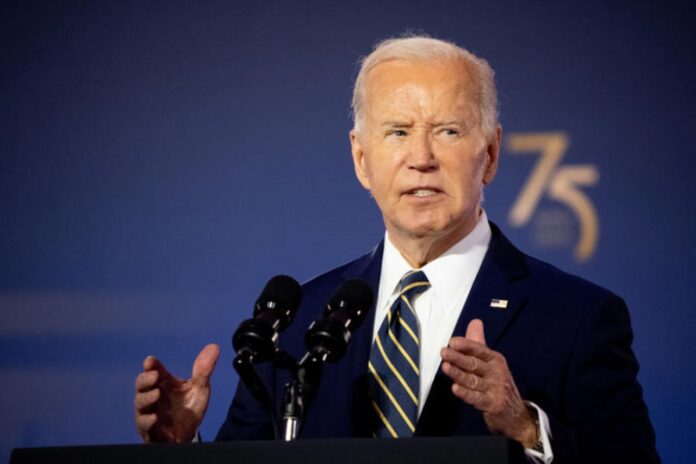With just days left before Donald Trump’s inauguration, President Joe Biden is making his mark in a surprising way—by doubling down on policies that could reshape the future of technology.
⏳ Time’s Running Out! Grab 1 Year of TheStreet Pro and get another year FREE. Offer ends soon! 🎁
While most outgoing presidents steer clear of big decisions in their final weeks, Biden is taking a different route. His latest move focuses on a fast-evolving area—artificial intelligence (AI)—where he’s leaving a significant footprint. But with Trump set to take over, the question is: Will these changes stick?
A Game-Changer for the Tech World
During Biden’s presidency, AI has skyrocketed, thanks in part to the rise of tools like ChatGPT. This boom has driven massive demand for the chips powering AI advancements, especially GPUs. Recognizing the critical role of AI, Biden has implemented steps to limit the export of these valuable AI chips to certain countries, including Russia and China.
Now, he’s reportedly planning even stricter rules on AI chip exports, targeting both specific countries and companies. The goal? To keep advanced chip development concentrated in friendly nations while nudging global businesses to align with U.S. standards.
What’s Changing?
According to reports, Biden’s plan will introduce a three-tier system for AI chip exports:
- Top Allies: Countries like Germany, the Netherlands, Japan, South Korea, and Taiwan will have near-unrestricted access.
- Adversaries: Nations such as China and Russia will face severe restrictions.
- The Rest of the World: Most countries will have limits on the computing power they can import.
This move could strengthen the U.S.’s position as a global AI leader, but it also raises questions. Should the U.S. use its dominance in AI as a diplomatic tool?
Nvidia Speaks Out
Chipmakers like Nvidia and AMD have already faced export restrictions since 2022, but Biden’s latest rules might take things to a whole new level. Unsurprisingly, Nvidia isn’t happy.
The company argues that further restrictions could harm U.S. economic growth and job creation, stating:
“A last-minute rule restricting exports to most of the world would be a major shift in policy that would not reduce the risk of misuse but would threaten economic growth and U.S. leadership.”
Nvidia believes the U.S. should foster global markets for AI chips to boost innovation and drive economic benefits.
What’s Next Under Trump?
How Trump will handle these AI policies is anyone’s guess. However, he’ll be leaning on tech heavyweights like Elon Musk and David Sacks for advice. Both are strong advocates for AI development and could push for policies that expand chip exports rather than limit them.
Trump’s recent shift on H-1B visas for tech workers—aligning with Musk’s views—hints that he may follow a similar path in the AI space. If these leaders prioritize global AI growth, the Biden-era restrictions could face a quick reversal.
Why It Matters
Biden’s bold steps highlight just how critical AI has become in shaping the future. Whether his policies stick or not, they’ve set the stage for a global conversation about tech, diplomacy, and economic growth.
As the spotlight shifts to Trump’s approach, one thing is certain: the AI revolution isn’t slowing down anytime soon. 🚀





